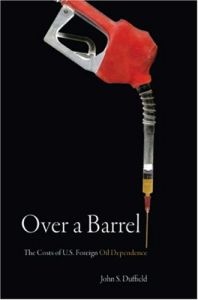Join getAbstract to access the summary!

Join getAbstract to access the summary!
John S. Duffield
Over a Barrel
The Costs of U.S. Foreign Oil Dependence
Stanford UP, 2007
What's inside?
To keep foreign oil flowing, the U.S. is destroying its reputation and moral authority, especially in the Middle East.
Recommendation
This ambitious, scholarly book, complete with statistics and charts on all things oil, undertakes the difficult task of measuring the price of U.S. dependence on this energy source. A comprehensive political and military history, it explains the geopolitics behind U.S. energy policy and analyzes its intended and unintended consequences, especially during today’s period of scarce energy. Duffield proposes solutions to the strategic problems U.S. policy creates, even though some of his suggestions are not quantifiable or easily achieved. getAbstract recommends this book to energy and utility company executives, government officials and other serious readers who want to understand the numbers and history behind this international dilemma.
Summary
About the Author
John S. Duffield is professor of Political Science at Georgia State University. He is the author of Power Rules: The Evaluation of NATO’s Conventional Force Posture (1995) and World Power Forsaken: Political Culture, International Institutions, and German Security Policy After Unification.


















Comment on this summary